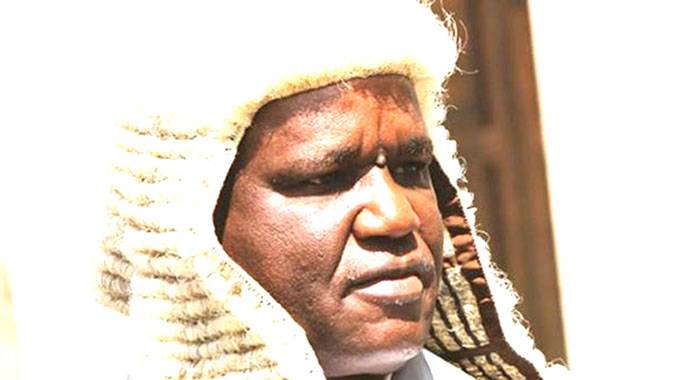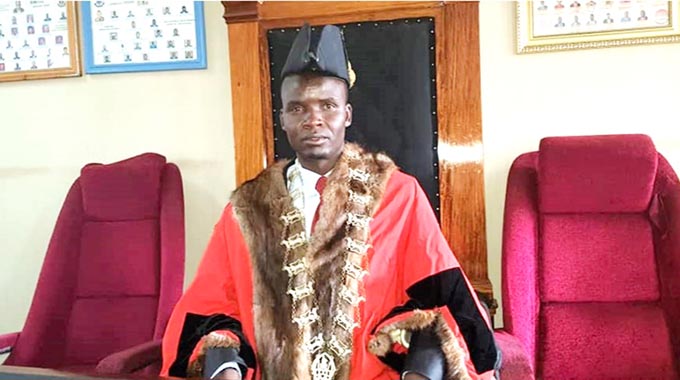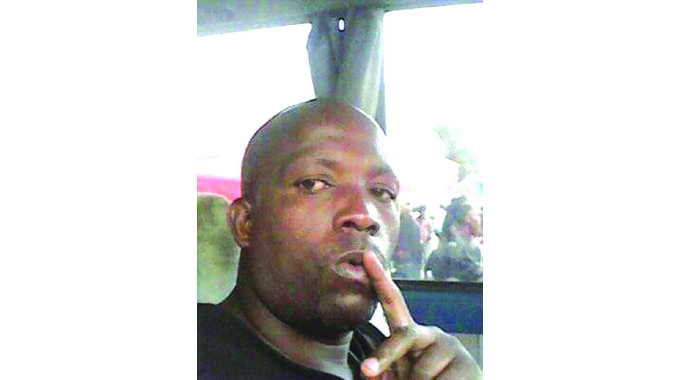5 High Court judges sworn in

Fidelis Munyoro Chief Court Reporter
Chief Justice Luke Malaba has said the five new judges joining the High Court are expected to add value and help ease the workload of the court, which is struggling to meet the new demand of litigation.
He was speaking after the swearing in of Justices Evangelista Kabasa, Christopher Dube-Banda, Siyabona Paul Musithu, Sunsley Zisengwe and Webster Chinamora at a brief ceremony in Harare yesterday.
The appointment of the five comes at time when the Judiciary has embraced Government’s initiative and taking various steps to aid in the fight against graft, which has stifled economic growth.
The five are expected to join their colleagues next week when the third and final session of the High Court begins.
CJ Malaba described the five, who are drawn from different backgrounds, as high-calibre individuals with competent skills.
“They are a competent people,” he said.
“They are lawyers who have had experience in many different fields, who are bringing that experience to the Judiciary and they are specialists, some of them. They are bringing in that experience from different areas.
“The addition of these judges in terms of their skills, competency, clearly can only be for the benefit of the public and in the interest of justice in the sense that we have had increase in litigation.”
CJ Malaba said the court was experiencing increased litigation, an indication that people have increased confidence with the courts.
Justice Kabasa said her six years’ experience as a Labour Court judge will help her deal with more diverse issues in civil and criminal matters.
“It is therefore an honour to join the High Court bench where I undertake to give of my best, dispensing justice in an impartial manner without fear or favour.
“Furthermore, given the current overwhelming workload, this gives me an opportunity to complement the hard work of my fellow judges who are striving to expeditiously dispense justice,” she said.
Justice Dube-Banda said he will strive to be not only fair and just, but to be fair and just in the “adjudication process and decide matters on the facts and the law, being cognisant of the constitutional imperative that enjoins a court when interpreting an enactment, and when developing the common law and customary law to promote and be guided by the spirit and objectives of the Bill of rights”.
Justice Musithu, who is joining the bench from a commercial, labour law and taxation environment, hopes he will contribute to the development of the best legal standards in the highly esteemed profession.
“It is also my hope that the State will continue to support the Judiciary as it has always done over the years, as one of the key pillars of our constitutional democracy, in executing its constitutional mandate as it dispenses justice between man and man, so as to preserve the high esteem in which our Judiciary is held in the region and beyond.”
Justice Zisengwe expects his new role to be “quite fulfilling and enjoyable in the professional sense”.
“The complexity, diversity and even volume of cases, though daunting in prospect, is something to look forward to because it is an honour and privilege to serve society at that level.
“I am aware that it will be no stroll in the park as difficult cases will inevitably come up, but then that is the nature of judicial work,” he said.
Justice Chinamora said it would be folly to think that the new role would be easy.
“The bench requires a work ethic of total commitment, industry and diligence,” he said.
He promised to execute his judicial functions with due care, admirable probity and aspire to contribute to the jurisprudence of this country through some ground breaking judgments.







Comments